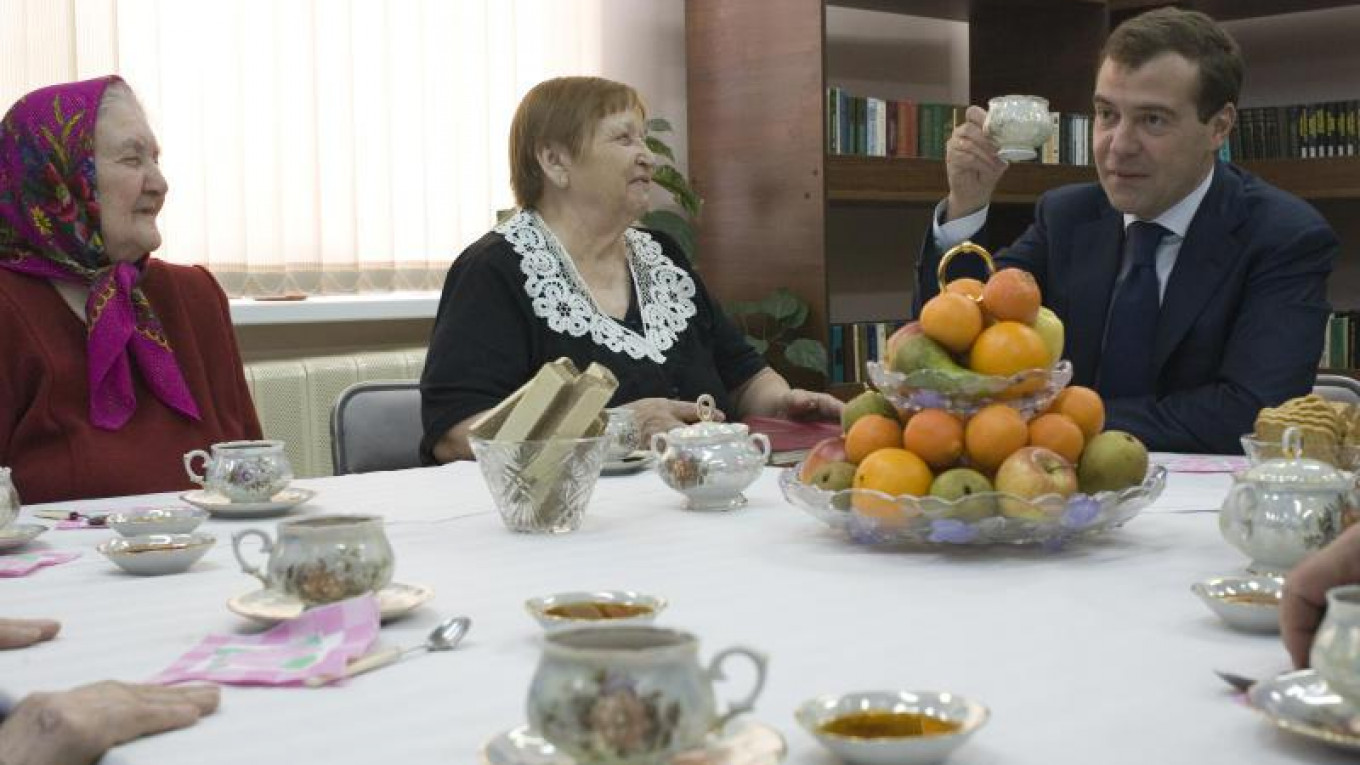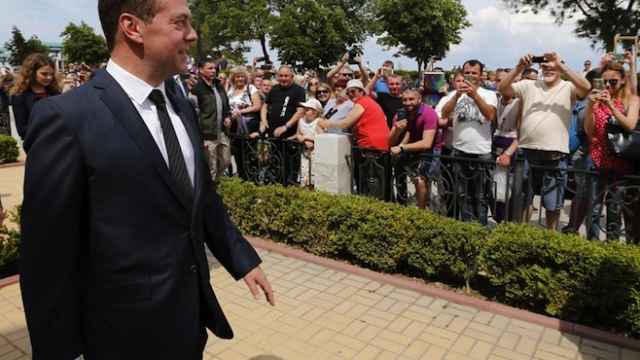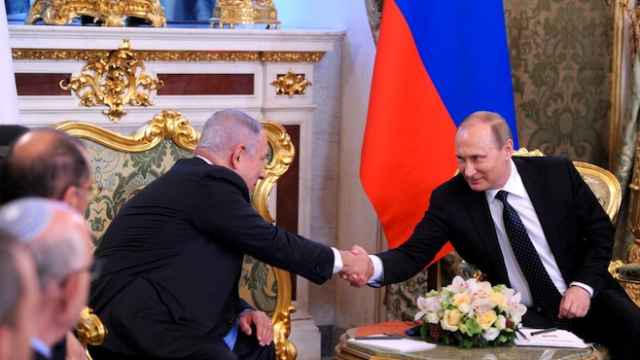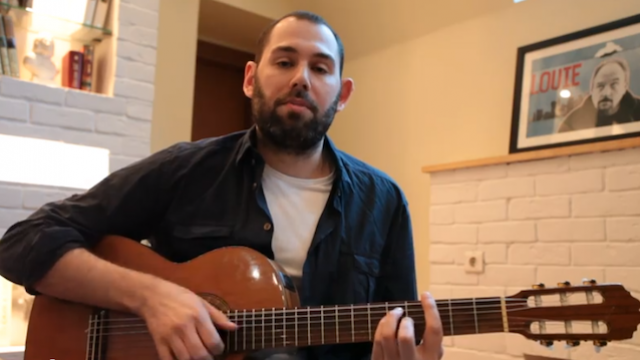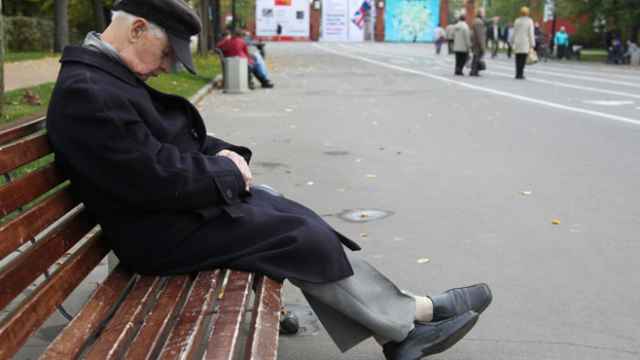The government will issue pensioners with one-time payment instead of indexing pensions for a second time this year, Prime Minister Dmitry Medvedev has announced. Pensioners are to receive a one-time additional payment of 5,000 rubles in January 2017, costing the federal budget some 200 billion rubles ($3 billion).
The payment will be handed out to approximately 43 million Russians, including state employees, the disabled, pensioners with part-time jobs, and those with social pensions, said Deputy Prime Minister Olga Golodets.
Russian law requires pensions to be indexed to the previous year's actual level of inflation- something which the government refused to carry out earlier this year. Authorities instead decided to increase pensions by just 4 percent, rather than by the official inflation rate of 12.9 percent.
The government promised to consider indexing pensions for a second time after evaluating the budget mid-year, but prospects have seemed dire for several months. The Russian Pension Fund collected 174 billion rubles ($2.7 billion) less than planned in the first half of 2016, with the federal budget now expected to cover the difference.
Speaking to elderly Crimean residents in May, Medvedev told pensioners that there was “just no money right now” to index pensions again, parting with a jaunty, “all the best, and you hang in there.”
Medvedev tasked the Labor Ministry in early August with finding reserves worth 137 billion rubles ($2.1 billion) to index pensions by 8.56 percent starting from September 1. The Ministry were able to find just 48.2 billion rubles ($744 million).
The plan to make a one-time payment will fulfill the government’s obligation to index pensions in 2016, State Duma deputy Olga Batalina told the TASS news agency. An 8.5 percent indexation in August would have raised pensions by an average of 1,000 rubles per month, she said. “A one-time payment of 5,000 rubles amounts to the same increase for the last five months of this year,” she told TASS.
The one-off payment system also appeases the Finance Ministry, which has opposed any form of re-indexing. The ministry has argued that re-indexing would raise the base level of pensions in 2017, in a way which a one-time payment would not.
In the meantime, Medvedevhas promised that government will index pensions in 2017 to the Economic Development Ministry projected actual inflation rate of 6 percent. That would cost the federal budget more than 270 billion rubles ($4.2 billion), Medvedev said.
Pensioners are valuable electoral resource for Medvedev's United Russia party, and would be a mistake to ignore them, said political analyst Konstantin Kalachev. “If indexation is impossible, the government needs pay attention to them [pensioners] somehow, without offending them and making it seem as if you are trying to buy their votes,” he said.
The most important thing for pensioners is not the size of their pension, but that the authorities demonstrate a willingness to support them, even when times are tough, said Kalachev. The authorities have also taken care to schedule the one-time payment for after the elections so that it would not look like a campaign tactic. “Nobody wants to create the impression that a pensioner’s vote costs 5,000 rubles,” he said.
A sharp rise in inflation has caused the real value of pensions to fall for the first time since 1999. The real size of pensions plunged by 3.8 percent in 2015, and by another 3.6 percent in the first half of 2016, the State Statistics Service reported. The situation is often no better for the many Russian pensioners who live with adult, working children, as overall economic decline also means that salaries are lower.
The government can fund the one-time payment in part with privatization revenues from and in part by savings on other expenditures, possibly in the fourth quarter, said BCS senior economist Vladimir Tikhomirov.
Yet with current projections and oil prices at $40 per barrel, the federal budget may not have money for either a one-time payment or indexation, one federal official said. The decision to move the one-time payment to January 2017 was most likely the result of a compromise with the Finance Ministry, which has the unenviable task of finding the money to finance the payment. The problem is now less about sourcing revenues than financing the deficit, the official said, with authorities soon facing the prospect of being forced to tap into the National Wealth Fund. Indexing pensions to the actual inflation rate in 2017 would put the country’s financial system at risk, and could even cause it to collapse be 2018, the official said.
A Message from The Moscow Times:
Dear readers,
We are facing unprecedented challenges. Russia's Prosecutor General's Office has designated The Moscow Times as an "undesirable" organization, criminalizing our work and putting our staff at risk of prosecution. This follows our earlier unjust labeling as a "foreign agent."
These actions are direct attempts to silence independent journalism in Russia. The authorities claim our work "discredits the decisions of the Russian leadership." We see things differently: we strive to provide accurate, unbiased reporting on Russia.
We, the journalists of The Moscow Times, refuse to be silenced. But to continue our work, we need your help.
Your support, no matter how small, makes a world of difference. If you can, please support us monthly starting from just $2. It's quick to set up, and every contribution makes a significant impact.
By supporting The Moscow Times, you're defending open, independent journalism in the face of repression. Thank you for standing with us.
Remind me later.


